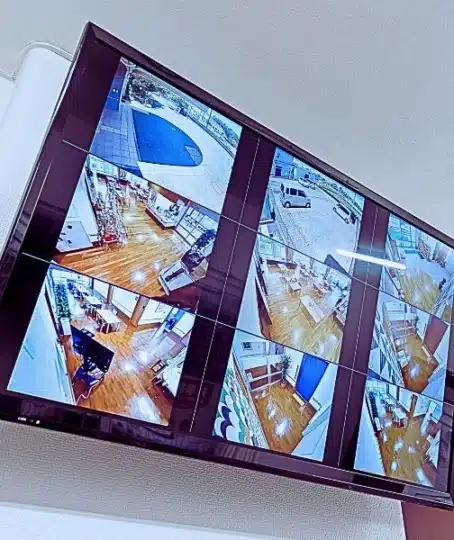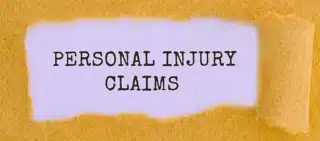
When a Dog Attacks Again and Again If dogs attack once, it’s alarming. When they attack five times, it’s no...


The discovery phase in a nursing home abuse lawsuit in Bloomington, Illinois, is the period where both sides assemble and exchange information and evidence related to their cases. This process helps the two sides know more about the other party’s claims and strengthen their cases with evidence-backed arguments. The two sides may enter a settlement agreement at any point of the discovery phase and avoid proceeding to trial. The discovery process guarantees a fair dispute resolution by avoiding surprise evidence, facts, or legal arguments at trial.
You need a knowledgeable nursing home abuse lawyer on your side to navigate the discovery process smoothly and gather the facts and evidence necessary to build a strong claim. Your lawyer knows the laws, regulations, and standards relevant to the nursing home and will comply with them throughout the process. The lawyer will use tools like depositions, interrogatories, requests for production, and requests for admission to gather the evidence and information you require from the other party.
If your loved one experienced abuse in a nursing home, call Strong Law Offices at 309-393-2928 to schedule a free consultation with a nursing home abuse lawyer in Bloomington.

The discovery phase is a stage in a lawsuit whereby both parties get an opportunity to review the evidence assembled by the other party and gather additional evidence. Discovery occurs once you have filed a formal complaint with the relevant court and the defendant has submitted a response.
The phase involves requesting information and evidence from the other side and responding to their requests. Either side may ask for the identity of any person with valuable information regarding the matter, basic information of witnesses, witness statements, and documentation or records related to the case.
The purpose of the discovery phase is to ensure a fair and transparent resolution of a legal dispute. It achieves this by allowing each side to access and review evidence and information related to the case before the trial starts.
Exchanging information allows both sides to prepare adequately for the trial. It prevents a scenario where either side gets caught unaware by surprise evidence, information, or legal arguments.
Discovery helps simplify the process by concentrating only on information and evidence relevant to the case. It allows the process to run smoothly without interruption by either party asking for evidence from the other. These interruptions could create delays, causing the discovery process to take longer than necessary.
Sharing information allows each side to know the strengths and weaknesses of the other. This knowledge can make room for negotiating a personal injury settlement, marking the end of the case.
The types of discovery methods used will vary with the nature of the case and the legal matters to be addressed. Generally, the most common discovery methods in nursing home abuse lawsuits include:
Depositions are instrumental in resolving nursing home abuse cases. They involve lawyers asking witnesses questions under oath. The injured party, loved ones, treating doctors, nursing home administrators, nurses, and support staff will be subjected to a deposition.
Court reporters often attend depositions to prepare an official transcript of questions asked, answers provided, and anything that happens during the proceedings. Your lawyer will use the deposition to find out what the other party thinks about your case, gather additional evidence to bolster your arguments, and assess how witnesses may conduct themselves during trial.
You should provide only factual information during deposition, as you will be under oath. Do not guess or provide an inaccurate response when faced with a challenging question. Instead, say you do not know or that you have forgotten.
Your responses should be precise and clear. Disclose only information requested by the interviewer. Volunteering too many details may hurt your case.
This powerful discovery tool involves one side requiring the other side to answer a set of written queries in writing and under oath. Any party intending to use this method must obtain the court’s permission.
Your lawyer will create and serve interrogatories on the nursing home administrator, staff, or witness to collect information that could help prove your claim. These interrogatories may help gather identifying information of anyone with information about the case. They may also collect details of people familiar with the nursing home’s care and operations.
Request for production of documents involves one party asking for relevant documentation and records from the other party. Document production requests in a nursing home abuse lawsuit seek to acquire copies of relevant records that could support your claim. Relevant documents may include:
Documents are not just limited to paper printouts. They also include electronic files, emails, messages, and social media posts. So, you need to be specific on the type of documents you require from the nursing facility. Otherwise, the facility may reject your request, claiming that it is too broad.
This discovery method involves one side requesting the other to admit or deny facts about the case. The responding side must confirm or deny the statement. Alternatively, the responding side may say it lacks adequate information to either confirm or deny the statement or allegation.
An admitted statement or allegation becomes a fact in a case. As such, requests for admission help streamline the litigation by only focusing on areas where a genuine dispute exists.
Failure by the defendant to respond to your requests for admission can help strengthen your claim. Your lawyer can file a motion requesting the court to order all admission requests to be considered admitted if the defendant fails to respond to your requests on time.
How long the discovery phase in a nursing home abuse lawsuit will take will depend on the nature of your case, the evidence to be assembled, and the degree of cooperation between the two sides. Generally, the process can take several months or sometimes more than a year.
Both sides must perform different discovery tasks within a specific timeline. Your lawyer can assess your case and predict accurately how long the discovery phase in your case will last. The lawyer can also predict whether your personal injury case will go to trial.
There is a thin line between what information can be obtained and what cannot be obtained in the discovery process. Lawyers can easily overstep the boundary and attempt to obtain private and confidential information purposely to humiliate the other side.
Although nearly any information is discoverable, certain limitations exist to prevent private information from getting disclosed to the public. Limitations apply to the following information:
Privileged confidential communications constitute statements and discussions between two parties that qualify for a private and protected relationship under the law. Attorneys cannot compel either party to reveal these conversations and statements. Additionally, these communications are inadmissible in court as evidence.
These discussions and conversations must happen in a private setting where there is no risk of others eavesdropping to guarantee privacy and protection. Privilege applies to communications between attorneys and clients, spouses, doctors and patients, and accountants and clients.
Courts acknowledge that certain aspects of personal life should remain private. Matters that qualify as private are debatable. Also, different states extend protections to different private matters.
The consensus is that you cannot be compelled to disclose information not related to the case, especially if that information concerns your private life. Protected private matters may range from your family relationships and religious beliefs to your sexuality and health status.
Individuals not directly involved in the case are entitled to certain privacy protections. Limitations apply to the information lawyers can obtain from third parties in your case, such as family members, workmates, and witnesses. The legal guidance and representation of a skilled nursing home abuse lawyer are necessary to streamline the discovery process and improve your odds of a favorable outcome. Contact us online or call 309-393-2928 to find out how our lawyers can help you hold the nursing home liable for your loved one’s injuries, suffering, and losses.

When a Dog Attacks Again and Again If dogs attack once, it’s alarming. When they attack five times, it’s no...

Overview of the Personal Injury Claim Process in Illinois No one expects to suffer an injury or get involved in...

Exploring Caps on Damages in Illinois Personal Injury Cases Illinois does not have laws capping damages in successful personal injury...